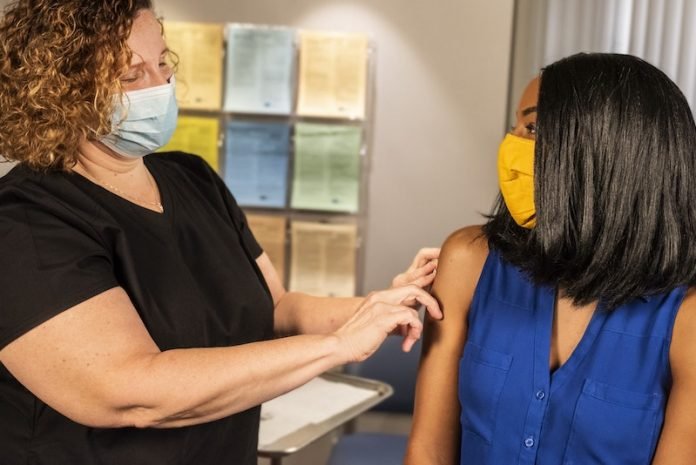
Our internal 24-hour circadian clock regulates many aspects of physiology, including the response to infectious disease and vaccination.
In a new study from Massachusetts General Hospital, researchers found that antibody levels are higher when people receive the SARS-CoV-2 vaccine in the afternoon versus the morning.
The study provides proof of concept that time of day affects immune response to SARS-CoV-2 vaccination, findings that may be relevant for optimizing the vaccine’s efficacy.
Symptoms of some diseases and the action of numerous medications vary by time of day.
People with lung diseases frequently have greater symptom severity and altered respiratory function at certain times of the day, for example.
A study of elderly men who received influenza vaccination showed that they had higher antibody titers when they received the vaccine in the morning compared with the afternoon.
In the study, the team evaluated antibody levels after SARS-CoV-2 vaccination among 2,190 healthcare workers in the UK.
As part of the UK’s infection prevention program, blood samples were collected from asymptomatic hospital workers at the time of vaccination.
The researchers examined the effect on antibody levels based on time of day of vaccination, vaccine type (Pfizer mRNA vaccine or AstraZeneca adenoviral vaccine), age, sex, and the number of days post-vaccination.
They found that antibody responses were higher in general for everyone who was vaccinated later in the day.
The antibody responses were also higher in those who received the Pfizer mRNA vaccine, in women, and in younger people, in addition to the effect of time of day of vaccination.
Moreover, the team found that antibody levels are higher when people receive the SARS-CoV-2 vaccine in the afternoon versus the morning.
The SARS-CoV-2 study contrasts with earlier studies in elderly men that reported higher anti-influenza titers in the morning.
The team says the SARS-CoV-2 vaccine and the influenza vaccine have different mechanisms of action from each other, and antibody response may vary greatly depending on whether the immune system recognizes the pathogen from earlier infections, such as influenza, or whether it is confronted by a novel virus.
The study is published in the Journal of Biological Rhythms. One author of the study is Elizabeth Klerman, MD, Ph.D.
Copyright © 2021 Knowridge Science Report. All rights reserved.



